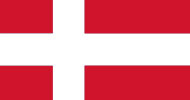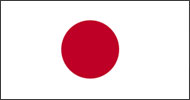
American interview
| Characteristic of US culture: - the principle fair play;
- they drive talks confidently and to the point,
- target and performance orientation are decisive;
- although characterized by a high degree of organization, they are also best described by great love of freedom and by self-confidence;
- since their life is fast-paced, precision and efficiency are important;
- they tend to be informal, easy-going, will call a new acquaintance their friend, which may be misleading for a foreigner;
- they value team work;
- are extremely ambitious, put much energy into their work;
- competitive spirit and drive for success imbue their everyday life;
- they ignore the sentiments of the other person.
Presentation- introduction of the interview: - the emphasis is on the own status, they stress their own results at the introduction;
- the handshake is firm, powerful, sometimes they will even lean into it a little and make eye contact.
- eye contact is typical; “eye to eye”, or face to face attitude;
- the dress code is restrained and conservative, a suit for men and elegant dress or suit for women.
In talks / interview: - they are frank and open;
- are target oriented, think in first person singular and first person plural;
- they value an individual approach, but also team work;
- they say rather more than less, embellish the past;
- they value practice more than paper, education;
- first they say what they want, then they justify it.
|

Anglo-Saxon interview
| Characteristic of Anglo-Saxon culture: - colorful ethnic and cultural environment, diverse population, small power range, individualistic culture;
- they are polite and polished, respect age;
- taboo issues: negative comments on the royal family, origins, private life;
- they have a particular sense of humor (self-irony);
- business gifts are not typical (may seem as bribe);
- the private and the business spheres are strictly separated.
Presentation- introduction of the interview: - they keep their distance, avoid physical contact, do not show emotions, their non-verbal communication is restrained;
- do not address them by their first name, no hand kissing with them;
- they value formal things (seating order), conservative dressing.
In talks / interview: - the word has credit, verbal agreements also stand;
- at business talks rational approach, demonstration are important;
- they negotiate with full power and take responsibility for their decisions;
- their negotiation style is brief, concise and to the point argumentation. „Time is money”;
- they respond quickly and openly to the partner’s arguments;
- they shun conflict, strive for consensus, do not like a pushy negotiating partner.
|

Danish interview
| Characteristic of Danish culture: - The Danish is an equalitarian society;
- Danes lay much weight on sustainability, innovative proposals;
- the majority of the Danes are modest, they tend to put their individual needs second to the interests of the group;
- Danish women are respected at their place of work, they earn as much as their male colleagues and stand good chances for management positions;
- working mothers enjoy flexible working hours;
- the Danish have a strict code of conduct which everyone is expected to respect, if someone fails to follow the rules - whether written or unwritten - the others will remind them.
Presentation- introduction of the negotiation: - come to the meeting on time; if you are delayed for some reason and likely to be late for the interview more than 5 minutes, phone them immediately;
- they like accuracy;
- on arrival and on leaving shake hands with everyone, keeping eye contact with everyone;
- shake hands with the ladies first;
- your handshake should be firm and curt;
- at an introduction the Danish stress the first name, they do not lay much weight on social status (e.g. Ms/Mrs Kontakt Olga/Rudolf);
- dress simply.
In talks / interview: - good communication skills are important for the Danish;
- continuous eye contact during talk is essential;
- the Danish conduct talks in informal manner;
- they expect polite behaviour from everyone;
- the time and date of the talks always have to be confirmed in writing;
- scheduled talks, meetings should not be held between mid-June and mid-August because most Danes are on holiday.
|

Finnish interview
| Characteristic of Finnish culture: - simple social stratification is characteristic of Finnish culture;
- they talk in level tones, shun making themselves conspicuous;
- they are very modest and tend to underrate themselves;
- the Finnish are broadly liked for their habit of continuing a business discussion in the sauna in a completely informal manner;
- In business, they put more emphasis on firm and purely business matters;
- Finns do not insist on personal contact, they find e-mailing convenient;
- they build long-term relationships, often outside the office, in a restaurant or sauna;
- any form of humor is acceptable to them, even in business.
Presentation- introduction of the negotiation: - the greeting is formal, firm handshake, direct eye contact and a smile;
- it is general practice with the Finns that during handshake they repeat several times their first and second names;
- dressing is conservative but elegant, men should wear a dark suit, women a conservative suit, trouser suit or dress.
In talks / interview: - they are painfully accurate;
- their dressing is casual, they think little of formalities;
- Finns are typically open and clear-cut in their speech;
- they speak at calm low voice and slowly, they have a particular sense of humor which can also be taken for sarcasm;
- professional difference is not considered a personal attack;
- the decision mechanism is slow, the Finns are rather inclined to drive monologues;
- the given word is binding, they reduce paperwork to minimum;
- they are very good at bargaining but are not as pushy as the Americans;
- they are rather stubborn negotiators.
|

French interview
| Characteristic of French culture: - They are proud of their culture, language, they like it when somebody speaks their language (ethnocentrism);
- they think a lot about protocol, good manners, appearances;
- they are hierarchical, rank and status are important;
- in official relations formal forms of address are accepted;
- qualified women are regarded as equal partners;
- meals play central role; it is not uncommon to negotiate beside the table;
- They usually speak louder than we do.
Presentation- introduction of the interview: - the handshake is light, fleeting;
- they wait till someone senior in rank extends his hand first;
- they also shake hands on farewell;
- wait until you are told where to sit;
- they think a lot about protocol, good manners, appearances;
- they are hierarchical, rank and status are important;
- in official relations formal forms of address are accepted;
- they regard qualified women as equal partners.
In talks / interview: - they are not competitive-minded, put a quality lifestyle ahead of business;
- they are contact-oriented so creating a good atmosphere at the talks is important;
- they come to the talks well prepared (and also expect others to be), but approach the problems from a theoretical angle, which makes it difficult to deal with them at times;
- the negotiations are time-consuming, they tend to hold long disputes over trifles, do not exceed their powers;
- few leaders are willing to take quick decision;
- they are determined and are not afraid of conflict either;
- not fully reliable so always confirm an agreement in writing;
- the documents made about the talks are invariably in French language (even if the talks are conducted in English);
- non-verbal communication is important: frequent handshakes, eye contact, gestures.
|

Indian interview
| Characteristic of Indian culture: - rank is important to them – mentioning success stories and important relations at business meetings is good, this makes them appreciate their partner more;
- If you are introducing an Indian person to someone, you must add his rank (e.g. doctor, professor, etc.);
- most companies are family businesses, so it is worth taking into consideration family members as well;
- they often cut talk, at such times you should join the conversation even by cutting them off;
- they will even raise their voices in the heat of debate;
- they speak rather fast, if you do not understand them ask them to speak more slowly;
- it is a characteristic of their culture that they do not like to confront;
- and if confrontation is inevitable, the elder and more senior manager will give feedback;
- praise is not characteristic of them;
- "yes" often means "maybe";
- "no" is never said directly, they like to be more polite - e.g. suggesting an alternative or staying quiet;
- they pay close attention to details, you should always come to the talks well prepared.
Presentation- introduction of the interview: - making you wait is typical of Indian culture - business first, and then comes the interview (the candidate may be kept waiting up to 2 hours, you have to prepare for this);
- they do not make very important point of dressing;
In talks / interview: - it is typical of Indians that they do things that may seem repulsive in our culture (belching, nose-picking, sniffing, etc.);
- it is also typical of their culture that they eat during the interview (pistachios, nuts, grapes) it is important that you do not get embarrassed, when offered these foods do accept them, even if the plate is already half empty of grapes/nuts;
- they respect each other, yet will cut into each other’s speech - if there is also Hungarian manager with them, they are more restrained;
- they are very clever, always up-to-date, heavily focus on the technical points in the interview;
- they like to test the candidate for business thinking;
- they are very patient - in fact patience is the basis of everything;
- if they catch someone lying, that is the end of everything;
- they do not accept anything mediocre - you are either good and smart or good for nothing - they only want the good;
- what they most dislike in us: our pessimism; they are convinced that there is solution to everything, they want optimistic people;
- they give you a free hand but demand perfect work - decentralized organization.
|

Japanese interview
| Characteristic of Japanese culture: - they deeply respect age;
- harmony and community are crucial;
- they expect criticism but bear it hard;
- although knowledge of the Japanese language is an advantage, do not conduct a discussion fully in Japanese;
- politeness and the etiquette are very important for the Japanese;
- Japanese are irritated by nose blowing;
- do not try telling a joke because they will not understand it;
- sophistication is emphatic in Japan;
- meals are ceremonial occasions.
Presentation- introduction of the interview: - come to the interview minimum 10 minutes early and switch off your mobile by all means;
- handshake is accepted: their handshake is weak and they do not or hardly look into the eyes of their partner because long eye contact is considered rude in their culture;
- a little nod is acceptable after the handshake, this signals respect for them;
- always present a business card and when you get his, treat it as a “nest egg”, do not put it away or write on it and study it well;
- the chatting phase, which serves to get to know the other party, is length;
- they do not like direct eye contact but feedback has important role.
In talks / interview: - they seldom say no;
- while they talk to you, keep nodding: this shows that you understand what they are saying and you follow the conversation;
- do not only answer the questions with “yes” or “no” but also use complex sentences;
- their face mimic is not European - e.g. smile does not express joy but rather doubt or disagreement, if they wrinkle their forehead they think hard and maybe agree with you;
- do not expect agreement till the end of the talks, which makes the talks appear very slow;
- address your negotiating partner by his title not by his name (e.g. Mr. Managing Director, Mr. Senior Engineer, Doctor, etc. )
- loyalty is crucial for them (a Japanese person will work for the same company in his entire lifetime), so those applications who had worked several years for the same company beforehand have clear advantage with them;
- never say bad things about your previous employer;
- in the interview they focus on the following things: hard work - they will rather choose an applicant who is diligent and fits into the team than one whose only advantage is that he is the best in his area;
- in short, they prefer diligence over knowledge;
- prepare thoroughly from the history and market position of the company;
- they may specifically inquire about the reasons of your successes and failures;
- they keep explaining and re-explaining what they want, but the concrete goals may only be revealed towards the end of the talk;
- never inquire for your prospective salary and other financial details because money is taboo issue with them;
- at the end of the interview, shake hands with everyone and thank them for the opportunity.
|

Korean interview
| Characteristic of Korean culture: - everything depends on relations - they will really only accept someone who already has Korean relations, most companies are also family businesses;
- for them profit is not everything - they would rather pay 10-15% more to a supplier they already know;
- they are clever, overbearing negotiating partners;
- they are respectful, they greet each other by bowing their heads, although handshake is also accepted already;
- you have to build a high level of confidence in them to open up - they are not going to make a deal with someone who has once hurt or publicly insulted them;
- they work in a hierarchy: age and rank are respected - e.g. if there is an older person in the group, then he is the first to enter the room, start eating first, etc.;
- those lower in rank must bow their head to their superiors;
- wait until you are introduced;
- have bilingual business cards on you (Koran-English) and always hand them over by hand, this shows respect;
- use formal form of address (e.g. Mr. Park, Dr. Kim);
- they value steadiness and perseverance, but you should always negotiate in such a way to bear in mind their interests too.
Presentation- introduction of the interview: - pay very close attention to what you are wearing for the interview - put on your most conservative attire (e.g. dark suit, white/light shirt, discrete tie for the men, no vivid colors, sleeveless shirts for women, instead dark skirt and white shirt);
- be very accurate, rather come early than late;
- do not extend your hand for a handshake - in their culture physical contact is only acceptable between close acquaintances.
In talks / interview: - pay very close attention to what you are wearing for the interview - put on your most conservative attire (e.g. dark suit, white/light shirt, discrete tie for the men, no vivid colors, sleeveless shirts for women, instead dark skirt and white shirt);
- be very accurate, rather come early than late;
- do not extend your hand for a handshake - in their culture physical contact is only acceptable between close acquaintances.
|

German interview
| Characteristic of German culture: - Germans shun uncertainty;
- they need regulation, order, calculability far more than the world average;
- they like stability, changes less so;
- they are receptive to long-term objectives;
- Germans rather focus on the attainment of real results;
- Germans are very good at enforcing their interests and at competing, but they do acknowledge the stronger, the winner;
- e.g. German managers are traditionally cautious and wary of new ideas, they are reluctant to embrace change, and are only willing to make organization changes slowly, step-by-step;
- detailed planning has tremendous value in German culture, this is the principal characteristic of German business cooperation too;
- planning is characterized by very high degree of precision;
- German culture is little receptive of surprising, flashy solutions.
Presentation- introduction of the interview: - handshake: they shake hands briefly but powerfully both on meeting and on farewell;
- direct eye contact is important;
- the language of the talk - especially if conducted in German - should be to the point and as simple as possible;
- precise, thoroughly prepare for the talks, briefly create an atmosphere (taboo issues);
- use of business cards is necessary, rank, scientific title, education should be shown on it;
- no private information on the official business card;
- Germans focus on the task in hand primarily;
- precision is important, even two-three minutes lateness may be offending especially if your host is a higher ranking businessman;
- they accept women as partners in business life (trouser suit is recommended attire);
- the participants of business talks must dress very conservatively.
In talks / interview: - they do not like surprising things in behavior, nor do they like compliments;
- Germans are target-oriented in talks and expect their partners to support their arguments with facts, data;
- they like to know where their partners are placed in the company hierarchy;
- do not expect from them spontaneous decisions and do not rush your negotiating partner, he will think in terms of long-term profitability and wants to be absolutely sure of his move, he does not want to take risks and “challenge”’ has little appeal to him;
- you should avoid abrupt and unexpected turns of conversation;
- a reliable promise made verbally is binding, but they like to put things in writing (contract);
- they are suspicious of any detour, too much detailing, they consider them insincere and sidetracking;
- too diplomatic wording may confuse and irritate the to-the-point, result-oriented partners.
|

Italian interview
| Characteristic of Italian culture: - apart from dressing, social status, education and family background are decisive in Italian culture;
- Italians are extremely talkative;
- there are big differences between the south and the north in terms of economy and mentality;
- they love their family, are religious, vain, direct, friendly, cheerful, courteous, very attentive hosts, not accurate;
- Characteristic of Italian culture:they are characterized by overheated emotions, passion.
Presentation- introduction of the interview: - Italians are laid-back negotiating partners but this does not necessarily mean that they are not serious;
- Italians expect you to present an elegant business card;
- men should wear conservative dark business suit, ladies a suit or elegant dress for the talks;
- elegant accessories are important both for women and men;
- a smile, hand gestures are important requisites of communication;
- ranks, titles are important, when addressing someone do list all of them (no first names);
In talks / interview: - creating a good atmosphere, good relations are important;
- in talks they usually go right to the point, without formalities;
- they expect you to be well-prepared technically, when they have ascertained that you are, they will be cooperative (e.g. exquisite presentation), even with female business partners;
- they like a good debate, bargaining (about all conditions) is the centerpiece of the talks; “smokescreening” is a popular method;
- they are not reliable, with a written contract additional guarantees are necessary; The presence of a lawyer may be necessary.
|

Portuguese interview
| Characteristic of Portuguese culture: - great hierarchical distances (role of rank, formal address);
- Portuguese are collectivists;
- their culture is rather “feminine”;
- they strongly avoid uncertainty, are not at ease with diversity;
- it is context-rich, emotionally saturated diffuse culture;
- more powerful non-verbal communication, louder speech are characteristic of them;
- they are theatrical, like to do things their proper way.
- On this page you can find more information about Portuguese culture.
Characteristics of their negotiation style: - they are highly religious, family ties are close;
- they are sentimental, but their gestures, tone of voice are more restrained than of the Spanish;
- their business service system, negotiating culture are not very advanced;
- creating an atmosphere is important, ranks are also but precision is not their virtue;
- coupling business with pleasure is frequent (invitation to restaurant dinner with music and dancing);
|

Scottish interview
| Characteristic of Scottish culture: - they hate to be identified with the English;
- they are extremely proud of their nation and their institutions;
- they are famous for their stinginess of which themselves also like to make fun;
- they are proud of their ancestors and preserve their memory well;
- they like company (regularly go to the pub);
- education is very important to them - they enroll their children in school already at the age of 5.
Presentation- introduction of the interview: - their business service system, negotiating culture are not very advanced;
- although they are very friendly and communicative, this should not mislead you, do keep your distance: e.g. do not sit too close to your partners;
- handshake should be firm and curt;
- do not talk with them loudly and do not cut into their words;
- be polite with them;
- until expressly asked to, do not call them by their first name (stick with the Mr, Mrs, Ms, Sir forms of address).
In talks / interview: - never do two things: do not call them Scotch (Scots or Scotsmen is the right term, while Scotch is a drink) + do not call their “skirt” a skirt because its proper name is kilt;
- they use few hand gestures but will watch the body language of their partner - e.g. too many hand gestures means for them that the partner wants to sidetrack and this will invite their mistrust;
- keep constant eye contact with your negotiating partner;
- they like to discuss world politics (especially US) issues - e.g. health system, education, transport policy - but do not want to know your political views;
- they also like to discuss their history, if you go for an interview, do read up on it;
- always be very accurate.
|

Spanish interview
| Characteristic of Spanish culture: - they are courteous, well-groomed, value moderation and modesty, are highly religious;
- in a female business partners they see the woman in the first place (they court and compliment her), they appreciate emphasized feminity in dressing;
- they avoid conflict, do not like to say “no” (instead: “we will see”);
- they are relationship-oriented: business meals, toasts are frequent;
- business gifts are acceptable;
- with a favor we earn their lifelong friendship;
- private life and business life are not separated sharply, they often invite you to their home which gesture you are expected to return.
Presentation- introduction of the interview: - they expect you to be on time, but they will not be (exception: bull fight) - they like to keep the candidate waiting;
- creating an atmosphere is important, address is primarily by rank;
- a reference person is important in establishing contact;
- their business service system is advanced (fax, telephone, internet) so they often resort to it instead of personal mailing, negotiation.
In talks / interview: - they communicate well, support their arguments with objective data, facts and seek conscious conviction;
- the decision process is rather slow and they keep walking in and out of the talks. for them “time is not money”, so do not rush them;
- they do not like to say “no” , confrontation should be avoided;
- agreement is first reached orally, then it is put in contract. They keep the contracts.
|

Slav interview
| Characteristic of Slav cultures and negotiation styles: Slovaks, Czechs, Poles: - their customs are very similar to ours, rank, personal relations are important;
- they find it difficult to thaw, decision-making is slow;
- decisions are taken by the top management, in general by several managers;
- the Czechs are famous for their hospitality, but will seldom invite you to their home;
- business meals - especially with the Polish - are popular and last long hours (many toasts);
- hand kiss is accepted.
Russians, Ukrainians: two different styles (traditional and American) - they are famous for their hospitality, friendliness, good relations and respect of the elderly are important to them;
- kissing is frequent even between males;
- business gifting is general practice;
- you need patience and perseverance to agree times;
- they expect accuracy from others, but will be late by hours themselves;
- for them time is not money, so do not rush them;
- negotiations are lengthy and are often interrupted by meals;
- rank is important, business card (bilingual) is a must;
- they are bureaucratic (permissions, seals), limited authorization is often only an excuse;
- they drive a hard bargain, walk in and out at the talks (a sign of importance) and often swear;
- they are cunning, not reliable, the presence of a lawyer is recommended;
- a memorandum is not equal to a contract.
|
| | |
| | |














